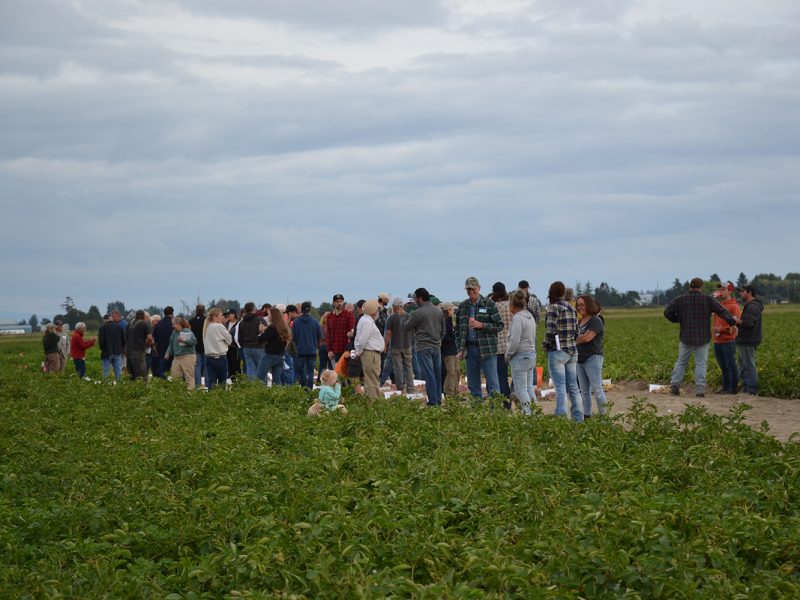Lower Mainland potato crops are expected to come in below average this year thanks to a late spring and an early start to fall.
Rod Burr of Burr Farms in Ladner put 200 acres of potatoes in this year, but he’s not expecting the same high yields that were seen last year.
“The yield will be down this year because we had such a late spring, so we’ll have to gamble a little bit with the fall,” he says. “I think the yield will be down for everyone.”
Burr has grown potatoes for 55 years and he says 2023 delivered one of the best harvests he’s ever had. Good conditions during the growing season and co-operative fall weather meant good yields and good quality for growers.
BC growers harvested an estimated 87,950 tons of spuds in 2023, a 10% improvement over the 80,000 tons harvested in 2022.
This year, similar to the 2022 season, harvest may be pushed into October to allow time for crops to mature. However, a blast of fall-like weather in recent days shows that it’s not over till it’s over for growers.
The onset of cooler weather has been good for some areas of the province, however.
Recent years have seen widespread wildfires and curtailments of water use across the province each August, but this year no fish protection orders were ordered under Section 88 of the Water Sustainability Act.
Moreover, the BC Wildfire Service reported no fires of note in the province as of August 27 and the extinguishment of 115 wildfires over the previous week. This leaves just 278 fires burning, including the Shetland Creek fire, which at its peak affected several ranchers and pushed the total area burned this year to more than a million hectares.
Vancouver Island also continues to wrestle with dry conditions, having been escalated to Level 5 drought on August 15. Drought conditions across the province generally worsened in mid-August, two exceptions being the Lower Columbia and Similkameen basins.


 Peach report bullish on future opportunities
Peach report bullish on future opportunities